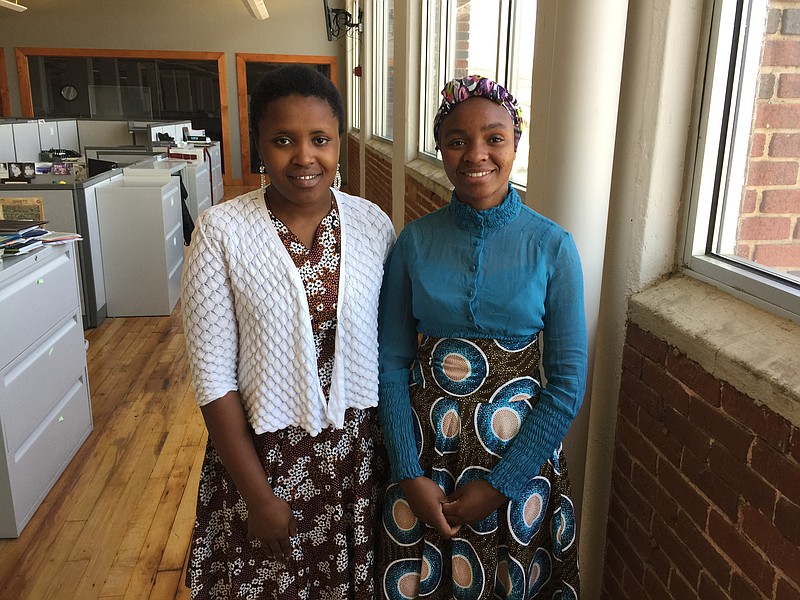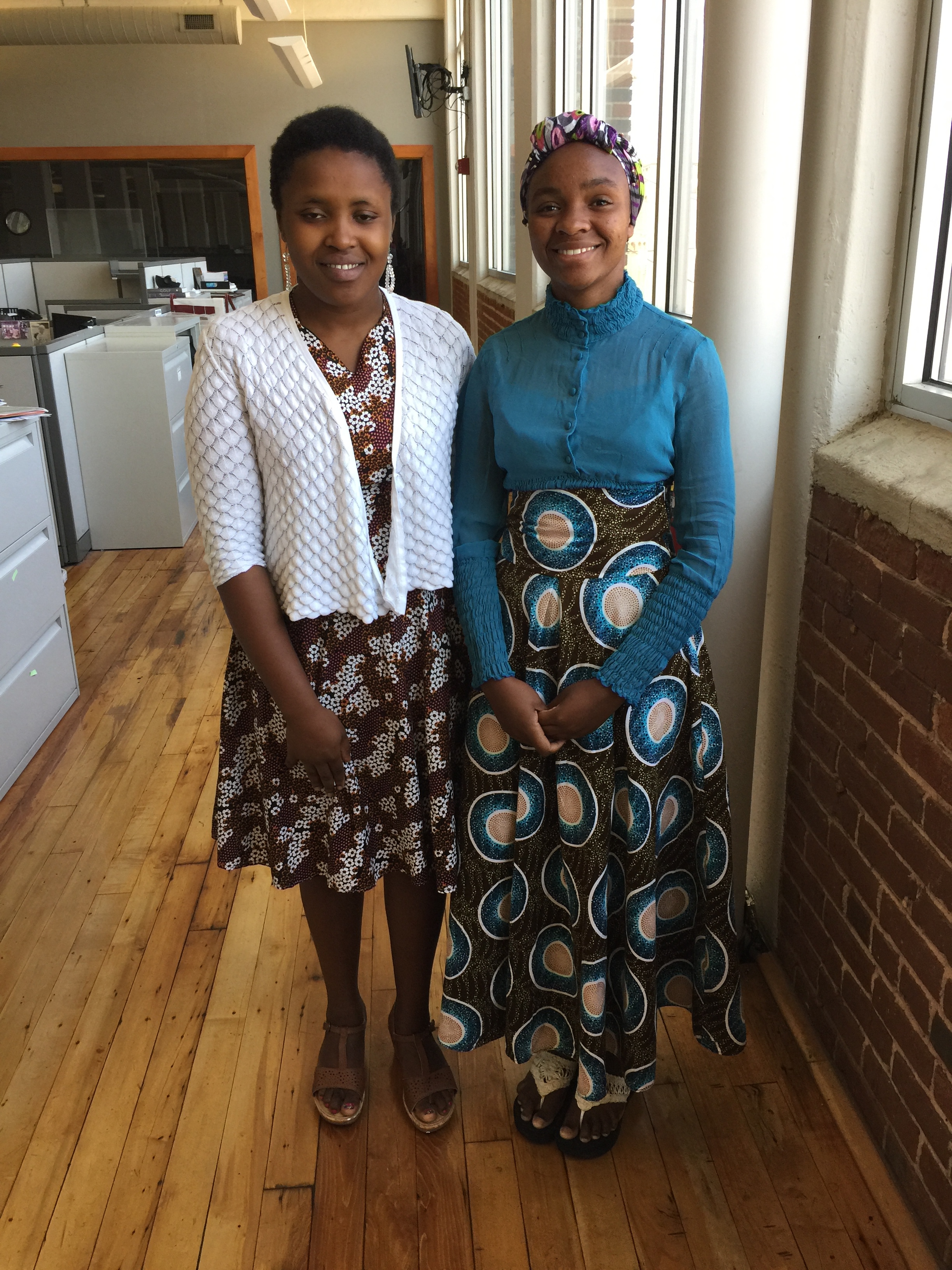Pardon Teresia Mwema and Hannah Wambui if they don't quite feel our pain over a recent water main break that crippled Chattanooga for a couple of days.
When asked about the local water interruption, which happened during their visit to the Scenic City, the two tried to suppress giggles.
The young women, who are visiting from Kenya, are from African villages with no electricity and no running water. For people who grew up walking many miles every day for a few gallons of water, our panic must have seemed overblown.
In Kenya, the two said, they were more worried about dodging leopards on the way to school and keeping venomous snakes out of their bedding.
The pair have been in Chattanooga for several weeks at the invitation of the Public Education Foundation and have spoken at several high schools, private and public. One of their mentors, Morris Thuku, is also from Africa and attended the McCallie School.
Teresia and Hannah have created an international buzz with their science acumen, specifically inventing a way to make primitive batteries from plant material and cow urine.
In 2017, the young women entered their invention in the Kenya International Science and Engineering Fair and won first place in the chemistry category for green energy.
"We had to use the available resources," Teresia explained in an interview. "The plant juices are good. They are organic. They don't hurt the environment."
Added Hannah, "In Africa, every homestead has a cow or two. They need cows to feed their kids milk."
Both Teresia and Hannah have endured hardships.
Teresia's father left home when she was 5 years old, she said, and her mother had to care for six children on a $2-a-day laborer's wage.
"She worked on other people's land," Teresia remembers. "If the crops were doing well, she could get a job. Sometimes we would go without food. Sometimes we would only have porridge for dinner, no breakfast, no lunch."
Teresia, now 19, got her first pair of shoes at age 14. She used light from a cooking fire to do her homework at night. Snakes would enter the house through rat holes, she said.
"God is good, I never stepped on any of them," she said.
Hannah's father died when she was 5 years old. She and her five siblings were divided among family members, she said.
View other columns by Mark Kennedy
"It was not easy since my dad was the only bread-winner," said Hannah, who is now 20 years old.
At age 13, Hannah moved to a nearby city and got work as a nanny to save money for her high school fees.
When she was finally able to go to school, she said, she had to leave home to walk to the schoolhouse at 4 a.m., sometimes encountering leopards along the way.
The women were paired together as study partners in a high school science club and learned to brainstorm together to solve practical problems.
Their electricity-producing invention offers the potential to bring sustainable power for light bulbs and cellphone charging to remote villages.
As for themselves, Teresia wants to study to be a nurse and Hannah wants to be a nutritionist.
The two say Chattanooga students can learn from their examples.
"The school kids [here] are inspired by our stories," said Teresia. "They have everything. ... There's nothing to hinder them from achieving more."
Contact Mark Kennedy at mkennedy@timesfreepress.com or 423-757-6645.


